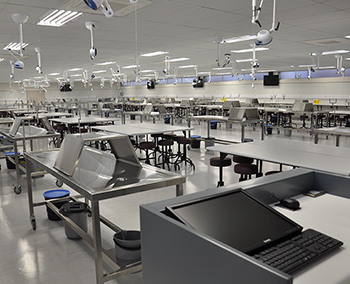Latest News Archive
Please select Category, Year, and then Month to display items
09 December 2020
|
Story UFS entral academic advising team
|
Photo Pixabay

It wasn’t easy, but we all got to this point because we stayed calm and made the effort to learn on even when it was difficult.
The University of the Free State (UFS) has remained committed to supporting you in every way possible, and as you prepare for the final assessments, remember to access the support tools you will need in order to successfully complete the 2020 academic year: https://www.ufs.ac.za/toolsforsuccess
Main exams are running from 30 November to 19 December 2020
All of the best, and break a pen in your upcoming final assessments. For those of you who will be graduating, we cannot wait to see you in that graduation attire; and those who still have some way to go, we cannot wait to serve you again in 2021 as we continue the pursuit of academic success!
Below are five main study tips that you can use for final assessment success:
1. Set a realistic study schedule
You might think that studying for eight hours straight for four days before the exam, will help you get through the work in time. See final edition of the #UFSLearnOn for more information.
2. Structure and organise your work
If your notes are organised, it is also easier for your brain to recall information, even when you become nervous during exams.
3. Practise with an old exam/semester test paper
Practice makes perfect, and although the final assessments might look different in how they are administered, it will still help to practise using old tests and exams.
4. Adapt your strategies to the content
What works for one module or even one learning outcome, might not be effective for another. You need to continually adapt your note-taking and study approaches. See #UFSLearnOn final edition for different study methods.
5. Healthy body, healthy mind
Your brain needs optimal care to perform at its best, and getting physically active (even if it is by jumping in one spot if space is limited) forces your body to release neurotransmitters responsible for positive emotions, which assist in retaining information in your memory …
Download the final edition of #UFSLearnOn that points you towards the resources you’ll need to ace your final assessments and end 2020 off on a high note!
New modern dissection hall ensures optimal learning experience for medical students
2015-12-14

New Dissection Hall in the Francois Retief Building on the Bloemfontein Campus.
Photo: Stephen Collett
|
The School of Medicine in the Faculty of Health Sciences at the university opened its doors on 6 June 1969. Three years later, a dissection hall for anatomy training was added to the school. This year, because of the prospective growth in the number of medical students as well as in changing methods of teaching and training, a new modern Dissection Hall has been completed on the Bloemfontein Campus. This ensures that students receive an optimal learning experience during dissection tuition.
The Dissection Hall was built as a double-storey wing to the existing Francois Retief Building. Covering 733m², the new facility is on the first floor - the same level as the existing hall - to allow easy access between the two facilities. The ground floor, totalling 465m², houses various offices for 16 people.
The new hall has special lighting and modern equipment for the training of second-year medical students in dissection. The hall also has high-quality sound and computer equipment. A unique camera system allows students to follow dissection demonstrations on 10 screens in the hall. Dissection demonstrations are recorded, enabling lecturers to compile new visual aid material for teaching and learning.
The dissection programme for medical students is of critical importance, not only for acquiring anatomical knowledge, but also for developing critical skills in medical students.
The new hall is also used for clinical workshops and postgraduate teaching seminars, as well as workshops in orthopaedics (shoulder, hip, and knee), otorhinolaryngology, cardiothoracic surgery (valve and endoscopy), and anaesthesiology, among others.
Both present and future generations of medical students will benefit from this new world-class facility.